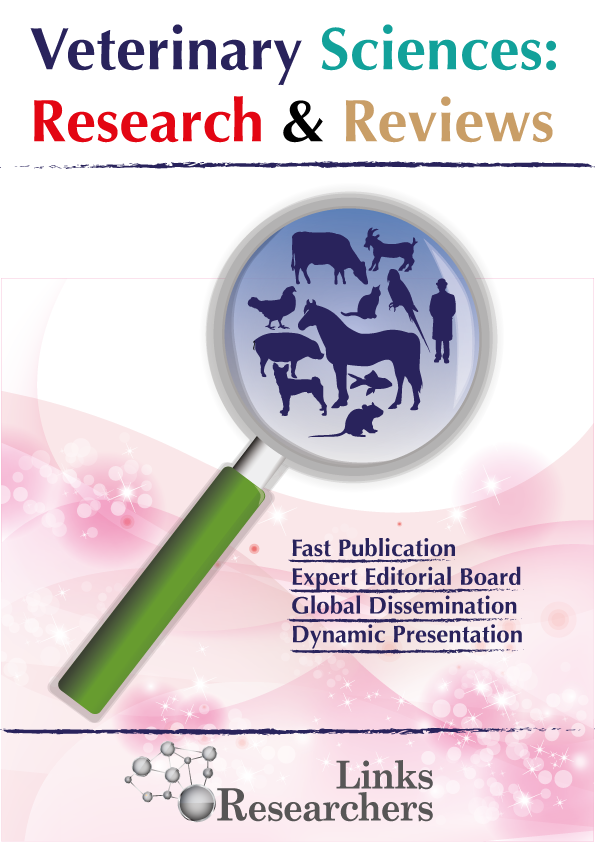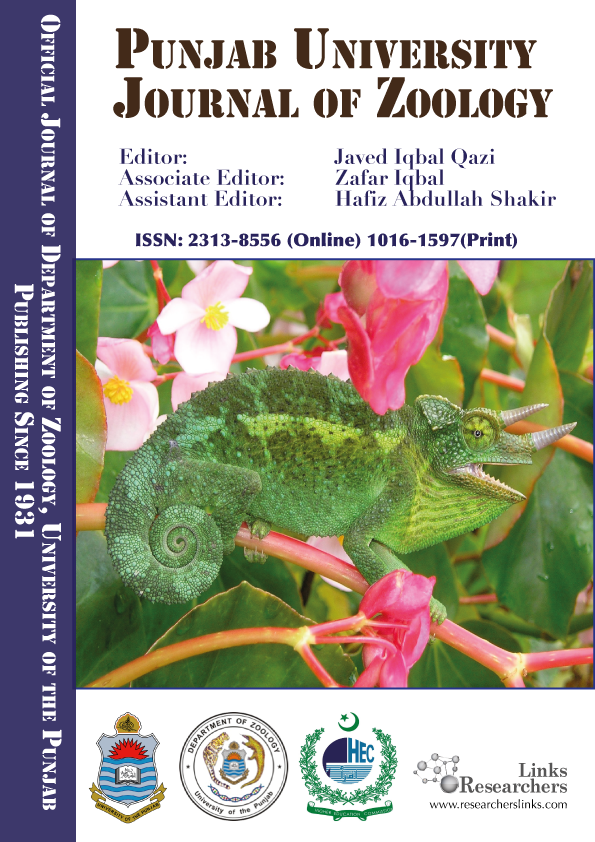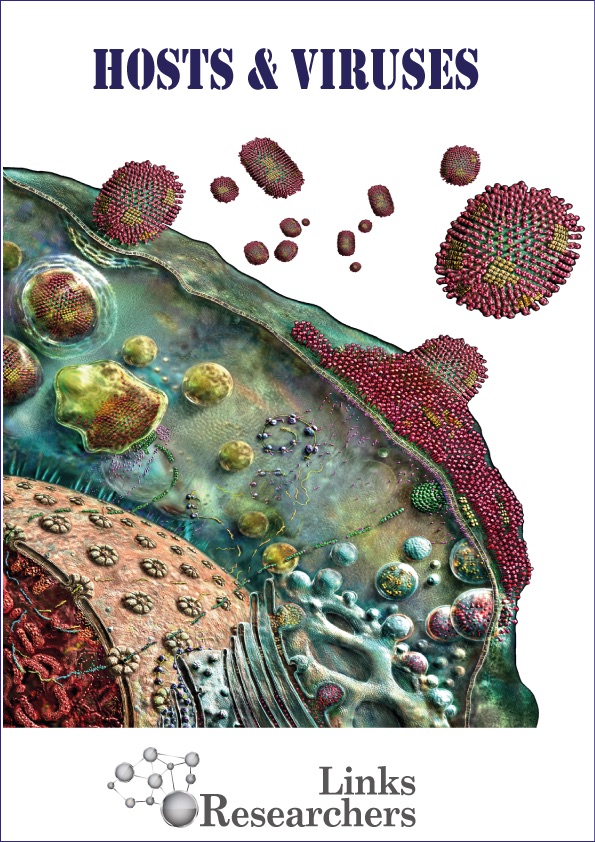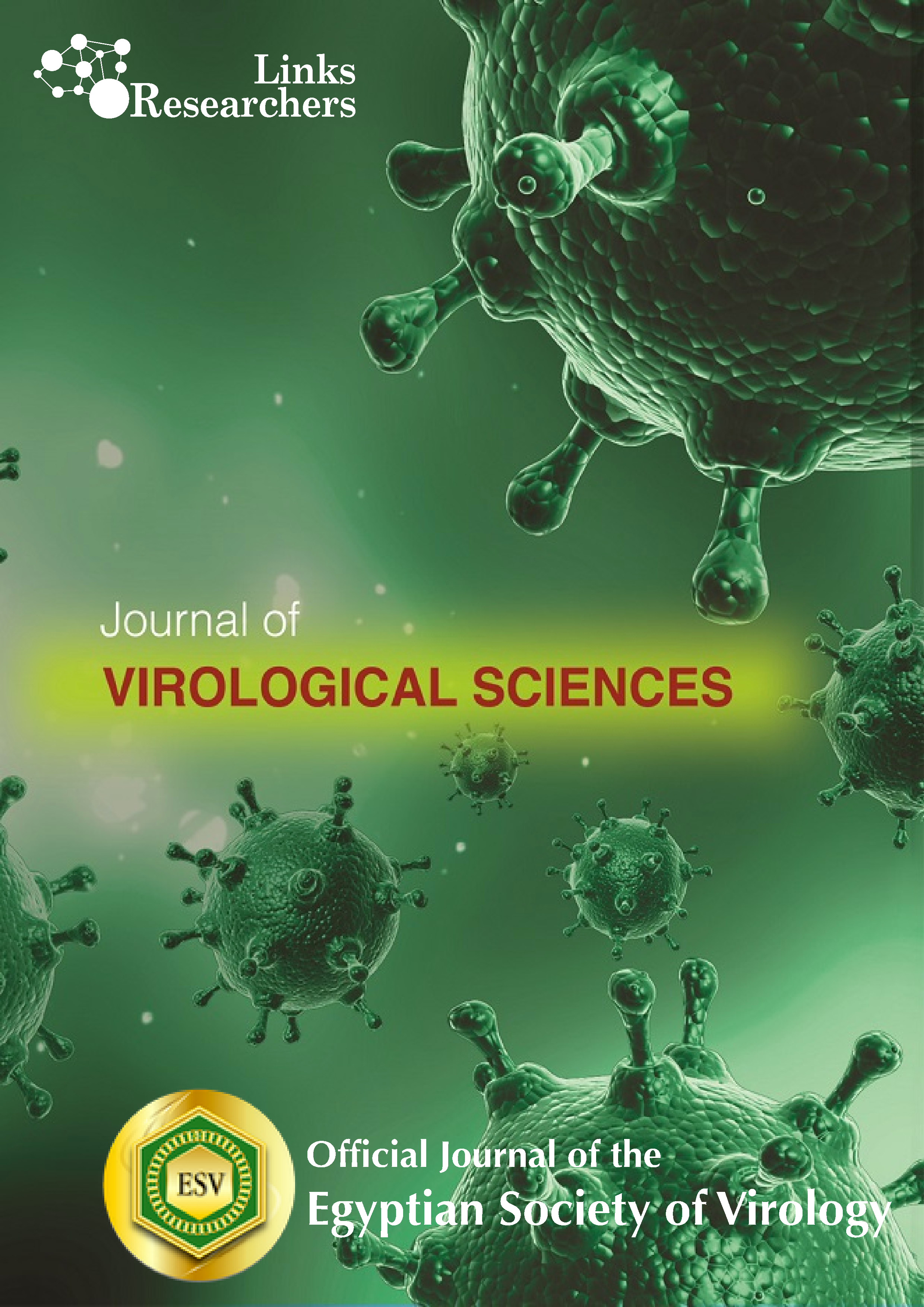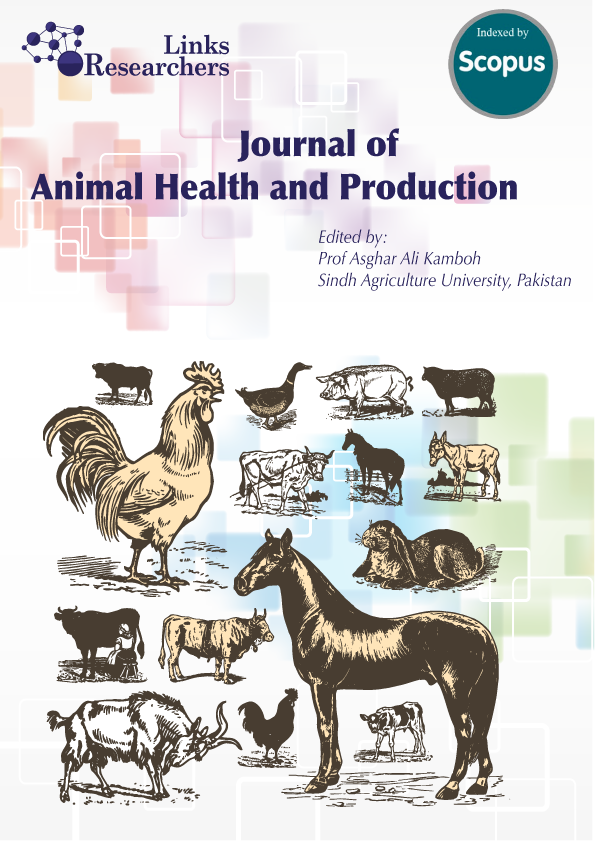Muhammad Arif Zafar1*, Arfan Yousaf1, Murtaz-ul-Hasan1, Faisal Ayub Kiayani1, Matee ul Islam2 and Muhammad Farooq Iqbal1
KM Fakhrul-Islam, Mohammad Shah Jalal, Sonnet Poddr, Md Nurul Quader, Md Sahidur-Rahman, Avijit Dutta and Shuvo Mazumder
Shaista Naz* and Noor Paio Khan
Md. Gulam Rabbany Rassel1, Kazi Afsana Homayra Orchy1, Md. Moshiur Rahman Khan1, Marzia Rahman2 and Md. Mahmudul Alam1*
Saad A. Moussa1, Ahmed F. Afify1*, Suzan Salah2 and Ayman Hamed3
Md. Ariful Islam, Md. Badol Ashraf and Md. Mahmudul Alam*
Walaa ,S. Shabanaa;Bakr, A. Abdallaa; Eman, M. ELShalamia; I.M. Redab; M. A. Shalabyb
Yasser F. Elnaker 1, Mohamed El-Tholoth 2, Sahar Saber 3, Amira A- Elsaid4, Mohamed A. Saad 3, Emad E. Younis 5
Ebtisam, A. Abouel yazeed1; Yanni, M.I.1 and Hanan A. Fahmy2
Abdelaziz A. Yassin, Ayman H. El Deeb, Abeer E. Mansour, Hussein A. Hussein
Fahima Khatun1, Abdullah-Al-Maruf2, Md. Mizanur Rahman2, Afroja Yasmin1, Mohammad Ali Zinnah3, Md. Aminul Islam4 and Mohammad Shah Alam5*
Tilahun Woretaw1, Netsanet Beyero2*, Yonatan Kassu3
Gülseren Kırbas Dogan1,*, Emin Karakurt2, Mushap Kuru3 and Hilmi Nuhoglu2
Hamdy Abdala Elnagar*, Wael Mohamed Wafa, Moataz Ibrahim Badwy, Abdelaziz Mustafa Sakr
Mirtneh Akalu1,2*, Takele Abayneh2, Esayas Gelaye2, Behailu Tefera2, Teferi Degefa2, Vemulapati Bhadra Murthy1
Aamir Ibrahim1, Bingyao Chen1, Hassan Ali2, Imran Ali3, Yang Cao1 and Guang Yang1*
Hamdy Abdala Elnagar, Wael Mohamed Wafa*, Abdelaziz Mustafa Sakr, Mohammed Mahmoud Hegazy
Md. Sabuj Rahman and Md. Mahmudul Alam*
Wael Mohamed Wafa1*, Mohammed Mahmoud Hegazy1, Mohamed Mohamed El-said Ibrahim1, Hamdy Abdala El-Nagar1, Rehab Fawzy Ismail2
Kamel Etman Ibrahim Etman*, Salah Kamal Sayed, Farouk Amin El-Sayed, Abd-Alghany Hasaneen Ghoniem, Mostafa Mohamed El-Nahrawy, Mona Ahmed Alsayed Farag
Khalid Farooq, Muhammad Tahir and Nazir Ahmad Khan*
Muhammad Iqbal Anjum*, Shahbaz Javaid, Agha Waqar Yunus, Faisal Ashfaq and Javed Iqbal
Roy Malindo1, Anuraga Jayanegara2, Osfar Sjofjan3, Siti Chuzaemi3*
Meltem Kızıl1*, Ali Rişvanlı2, Murat Abay3, Tarık Şafak4, Mehmet Akif Kılınç5, Öznur Yılmaz6, Burak Fatih Yüksel1 and İbrahim Şeker1
Samin Ullah1, Huma Rizwana1, Abdul Kabir1,2*, Atique Ahmed Behan1, Muhammad Naeem1, Ghulam Shabbir Barham1, Abdul Hafeez Bukero1, Anees ur Rahman1, Naseeb Ullah1 and Shafiq ur Rahman Shah1
Walaa I. Mohameden1, Haidy G. Abdel-Rahman2, Ibrahim M. Hegab3*
H.A. El-Nagar1, A.M. El-Hais2, M.S. Mandouh2, W.M. Wafa1*, A.H. ABD El-Aziz, K.A. Attia4
Bilal Ahmed Shah1, Muhammad Avais1*, Jawaria Ali Khan1, Masood Rabbani2, Aftab Ahmad Anjum2, Muhammad Asad Ali2, Muhammad Awais1, Sohail Ahmad3 and Shahan Azeem2*
Liyun Chang*, Yazi Li, Yumei Cai and Chenghui Li
Hamdy Abdala El-Nagar1, Abdelaziz Mohamed Elhais2, Ayman Hassan Abd El-Aziz3, Wael Mohamed Wafa1, Mohamed Sobhy Elsayed Farrag2, Moataz Ibrahim Badawy1, Safaa Elsayed Salah Atia2
Umar Salisu Ahmad1, Adamu Abdul Abubakar1,2*, Hassan Abubakar Bodinga1, Nura Abubakar1, Ekaete Ime Oviawe1, Zaid Shehu3, Abubakar Musa Mayaki3
Yousifl ,3 , Ausama A. and Al-Naeem , Abdelmohsen A.
Rizk, Sonia A.; El-garf, Eman M. and Talaat, Abeer A.
El-Sabagh, I.M.; Hussein, H.A.; Amer, H.M.; El-Sanousi, A.A.; Reda,I.M. and M.A. Shalaby
Attyat, M. Kotb; Abeer, E. Mansour; Naglaa, I. Aly; Zeinab, T.Salama and Azab, A. Mohamed
Manva F.M. Abdel Monem; Gihan K. Mohammed;** Sami A.M.; and Saber M.S.*
Sonia, A.M.; El. Sanousi, A.A.; Saber, M.M.; Daoud, A.M.; Samira, E.K.; and Ismail I.
Abdel Razek,B.Omar*and Magda M.Sayed**
Ahmed Abd El-Samie H. Ali
S. A. Khalil1; M. El-Sayed2; M. M. El-Fayomy2; H. Y. Hassan3 and A. Zaghawa3
Erika P. Grijalba-Bernal*, Fernando Rodríguez-Villamizar, Martha L. Chaparro-Rodríguez, Juan C. Ovalle, Martha I. Gómez
Ahmed Kareem Kadhim Al-Wasmee1, Waddah Salam Hassone2, Hawraa Talib Al-Janabi3, Hamed AH Al-Jabory1
Hilarius Yosef Sikone1*, Gomera Bouk2, Edelnia Kristina Bere2, Yohana Kamlasi2, Elisabeth Yulia Nugraha1
Aya A. Saber1, Mohamed Fawzy2*, MokhtarM. EL-Tarabili2, Eman K. El Sayed2
Safdar Abbas1, Jawaria Ali Khan1*, Syed Saleem Ahmed1 and Aftab Ahmed Anjum2
Bilal Ahmed1, Asep Setiaji1*, Lisa Praharani4, Faheem Ahmed Khan2, Nuruliarizki Shinta Pandupuspitasari3, Mohammad Miftakhus Sholikin4,5,6,7, Windu Negara2, Azhar Ali1, Muhammad Rizwan Yousaf1, Hamza Zulfiqar1, Alina Munawar8
Md. Asaduzzaman Lovelu1, Md. Amir Hossain2*, Md. Uzzal Hossain1, Tanzila Zafrin Tanvi1, Mahfuza Ferdous3, Nazmin Sultana Runa4, Assrafi Siddika3, Md. Sahidul Islam2
Barkat Ali Jatoi1*, Amjad Hussain Mirani1, Abdul Latif Bhutto1, Ambreen Laghari2, Abdul Samad Magsi3, Ahmed Sultan Jatoi4, Aneela Sultan Jatoi5, Muhammad Mohsen Rahimoon6, Aarab Khan Lund7, Om Parkash1, Atif Ali Malak8
Al-Moataz Bellah Mahfouz Shaarawy1, Mahmoud Yassin Mohamed1*, Mahmoud Sayed Sayah2,1, Ashraf Ali Mehany1, Ezzat Arafa Ahmed El-Beltagi1, Shimaa M. Ali1
Nguyen Ba Trung1,2*, Pham Thi Kim Phuong1,2
Tran Ngoc Bich1*, Vo Tuan Khai Huyen2, Nguyen Tran Phuoc Chien1, Dang Thi Tham1, Nguyen Vinh Trung1, Truong Van Hieu3, Thai Quoc Hieu4, Huynh Truong Giang1, Le Quang Trung1
Danyal Khan1, Abdur Rahman1, Muhammad Shuaib2,3*, Sohaib Ul Hassan4, Abubakar Sufyan5, Wajid Ullah1, Seema Jani1, Obaid Ullah6 and Shahrood Ahmed Siddiqui7
Mustafa Abd El Raouf*, Mostafa Abdelazim, Abdel Basit M. Abd El-Aal, Shebl E. Salem
Adi Tiya Warman1, Panjono1*, Tri Satya Mastuti Widi1, Sigit Bintara1, Bayu Andri Atmoko2, Endang Baliarti3
Tarek M. Mousa-Balabel1*, Ebrahim M. Farg2 and Abobakr A. Elkot1
Abdullah Khazal Mohsen1, Sura Emad Jassim2, Tania T. Alaridhi3, Amran M. Al-Erjan4, Qais R. Lahhob5*, Mustafa Mudhafar6,7
Mohammed A. Hamad1*, Murtadha Abdule Mahdi Al-Mudhafar2, Alaa Fayeq Habeeb3, Firas R. Jameel1, Ismael Raheem Al-Muhana2, Najemaddin A. Hamad5
Featuring
-
Conservation of Local Geese (Anser Anser) in Egypt: Characteristics of Production Systems and Breeders’ Perception
Amal S.Omar, Mahmoud A. Ahmed, Nada A.S. El-Shahawy, Wael A.H. Ali, Sabbah F. Youssef, Hoda M.A. Shabaan, El-Sayed M. Abdel-Kafy
J. Anim. Health Prod., Vol. 12, Iss. 4, pp. 630-638
-
Protective Response of Zinc Oxide Nanoparticle with Chitosan Oligosaccharide on Intestinal Integrity, Goblet Cell Count, and Meat Quality of Broiler Chicken under Heat Stress
Syed Abdul Hadi, Jameel Ahmed Gandahi, Muhammad Ghiasuddin Shah, Saima Masood, Noor Samad Gandahi
J. Anim. Health Prod., Vol. 12, Iss. 4, pp. 621-629
-
The Role of Probiotics as Alternatives to Antibiotic GrowthPromoters in Enhancing Poultry Performance
Rico Anggriawan, Widya Paramita Lokapirnasari, Sri Hidanah, Muhammad Anam Al Arif, Diyah Ayu Candra
J. Anim. Health Prod., Vol. 12, Issue. 4, pp. 610-620
-
Epidemiology and Diagnostic Insights into Orf Virus Infection in Palestinian Sheep and Goats: A Histopathological and Serological Study
Hazem Sawalha, Mujahed Abu-Alrub, Bashar Abu-Alrub, Abdalsalam Kmail
J. Anim. Health Prod., Vol. 12, Issue. 4, pp. 601-609
Subscribe Today
Receive free updates on new articles, opportunities and benefits

© 2024 ResearchersLinks. All rights Reserved. ResearchersLinks is a member of CrossRef, CrossMark, iThenticate.

